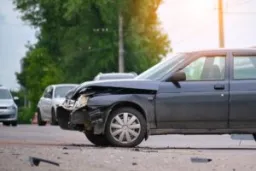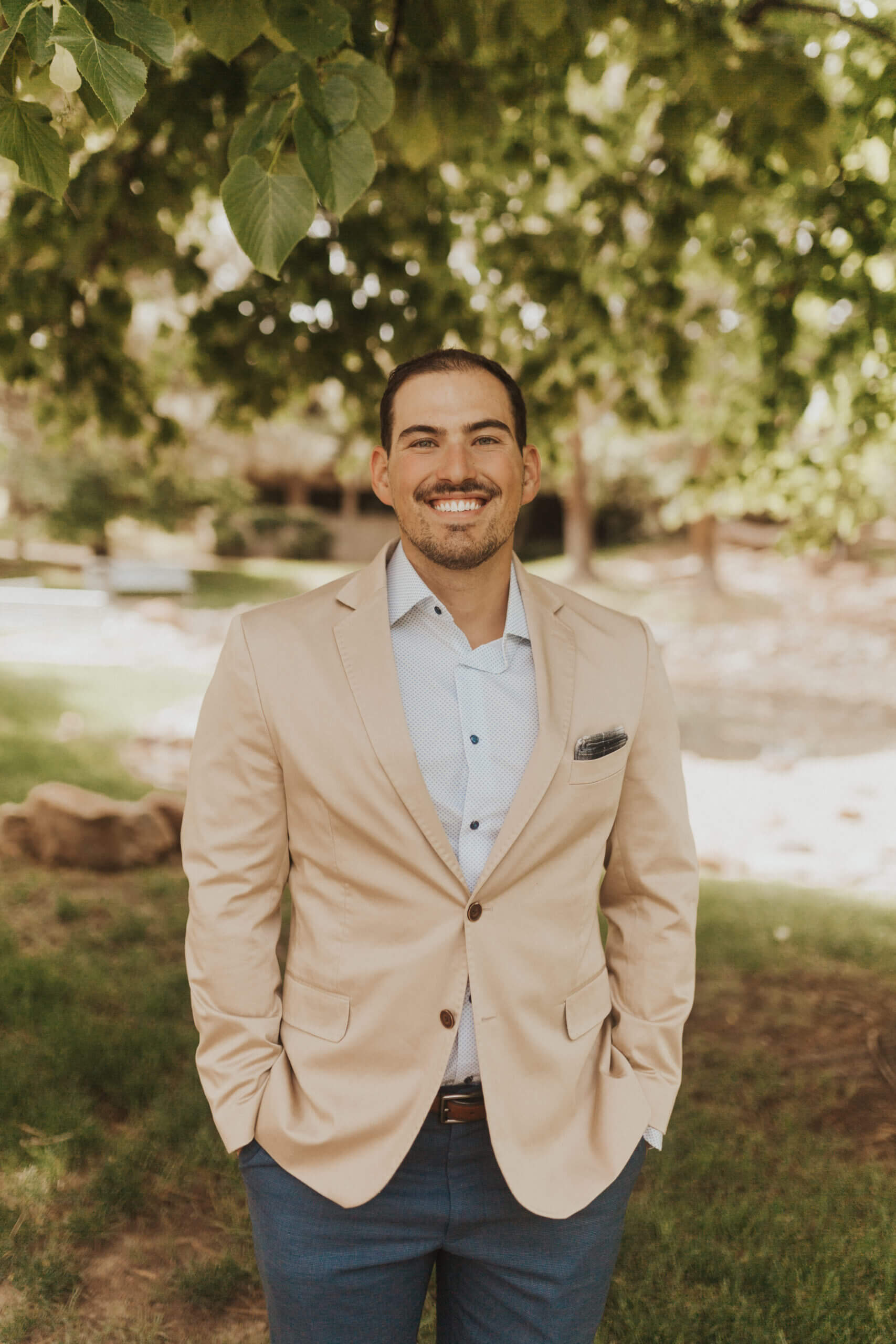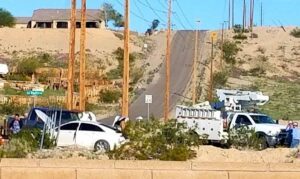
Did you know that in Colorado, as many as one out of every eight drivers is currently uninsured? Even though Colorado has some of the safest drivers in the nation, many motorists fail to meet the state’s minimum insurance requirements. Therefore, getting in a car accident with an uninsured motorist is an all too common occurrence.
What should you do if you have been hit by a driver that doesn’t carry insurance? What are your legal options? Who will pay for damages after a car accident with someone driving uninsured? After all, car accidents are traumatic in and of themselves. However, if you are involved in an automobile collision with a motorist that is not insured, matters could become even more complicated. For this reason, it is important to know what steps you should take to protect your rights!
If you were involved in an auto collision with an uninsured motorist in Colorado, our attorneys are here to help you. We serve drivers in Parker, Boulder, Denver, Colorado Springs, and the surrounding areas. So, if you have questions, contact Matlin Injury Law now. Our team is here to fight for you and help you get the compensation you are legally entitled to. You can also read on below to better understand Colorado’s insurance laws and learn the seven most critical steps to take right after being hit by an uninsured driver.
For a free legal consultation, call 303-777-1000
Tell us about your case
What to Expect After an Accident with an Uninsured Driver: 7 Key Steps to Take
Unfortunately, many Colorado residents decide to get behind the wheel without having minimum liability coverage from an insurance provider. When these drivers get into accidents and other motor vehicle operators are injured, a significant financial burden may be put on victims. So what is available to protect victims from uninsured motorist damage?
In some states, UMPD (uninsured motorist coverage for property damage) can help. However, this form of insurance is NOT applicable in Colorado. In fact, Colorado drivers often can not even purchase this type of coverage. Instead, you can purchase collision insurance.
Collision insurance is a type of coverage that helps to pay for a replacement vehicle or repairs to your car after a collision with another vehicle, fence, tree, or other objects. Collision insurance is not a mandated requirement. Nevertheless, if you lease or are paying a loan on your car, your lender may make it a requirement. Though different from uninsured motorist coverage, collision coverage generally applies to any type of damage resulting from a collision. So, depending on the coverage you have, your insurance provider will be held liable to pay for damages if you are in an accident with an uninsured driver.
Still, you might need a lawyer to access this type of recovery from your insurance provider. That is why it is so important to protect yourself legally after an accident of any kind. With that in mind, here’s what to do if you are hit by an uninsured driver in Colorado to give you the best chance of getting the compensation you need to pay for your hospital bills, property damage, and other costs.
Step 1. Get to Safety
Your safety is always the number one priority after any kind of automobile accident. So, the first thing you should do is get to safety. Do a head-to-toe assessment of your bodily harm. If you have just been in an automobile accident, adrenaline could be pumping through your veins. This can mask injuries. So, proceed with caution and don’t make any sudden movements. Call 911 and report the accident right away or get someone to call for help on your behalf.
Step 2. Make a Police Report
Next, it’s time to make a police report. Even if the uninsured driver tries to dissuade you from reporting the accident to the police, you are legally required to report any kind of automobile accident that causes damage in Colorado. This is called the duty to report an accident, and it falls under Colorado Revised Statute Title 42-4-1606.
Therefore, if you have sustained bodily harm or noticed damage to people, personal property, or public property, a police report is going to be made regardless. If you aren’t sure what to say to the police or believe the other motorists will argue about who is at fault for the accident, you may also want to call a lawyer right away.
Click to contact our personal injury lawyers today
Tell us about your case
Step 3. Document Evidence
At this stage, it is important to document all evidence of the accident. If you have a smartphone, take pictures of the damage to your vehicle. Take pictures of other forms of evidence as well like skid marks on the road, the weather conditions, the time of the crash, traffic controls, or anything else that seems relevant. If you have any visible injuries, you can take pictures of those too. If you are unable to take photos of the scene of the crash, ask a loved one to take photos for you. If you can call for help, go ahead and do that.
In times of trouble, it is always good to have family or friends available to assist you. Be sure to proceed with caution and use your best judgment. Do not put yourself in danger to gather evidence. If you have an attorney working on your behalf, they may be able to gather evidence for you.
Step 4. Get Witness Statements and Contact Information
Did anyone witness your accident? If so, get their contact information. You may also want to take a video of their witness statement if possible. Phone numbers, email addresses, first and last names, and any other helpful information from witnesses may be useful if your case goes to trial later. Also, get the business card and name of the officer helping you. That way, your attorney can get an accident report from them easily.
303-777-1000
Matlin Injury Law can help you get the compensation you deserve.
Step 5. Get a Complete Examination from a Doctor
Whether you need to go to the emergency room or schedule a visit with your primary care physician, it is important to get a full physical examination. After an accident, you may not feel many of your injuries at first. In fact, injuries like whiplash can take a while to set in. As such, it is best to schedule a complete physical examination. If your condition is poor, an emergency room visit could also be in order.
Remember to follow your doctor’s treatment instructions to the letter. Attend all follow-up appointments and see any of the specialists that are recommended. Keep copies of your records and medical bills. Any hospital invoices or official medical reports should be kept as well.
Step 6. Be Careful What You Say
After a car accident with a driver that does not have insurance, things can get complicated quickly. Your insurance provider may not jump at the chance to pay your medical bills or expenses. In fact, sometimes insurance claim adjusters will use your own words against you to try to get out of paying for damages. With this in mind, do not post anything about your accident on social media. Also, it may be wise to wait to report your accident until you have spoken with an attorney. There are limitations on how long you can wait to report your accident with an insurance provider. So, contact an attorney as soon as possible.
Step 7. Retain a Skilled Personal Injury Car Accident Attorney in Colorado
Finally, you should consider calling an attorney. Girl, you should have someone on your side that is familiar with the legal process inside and out. In Colorado, uninsured motorist accidents can be fraught with complications. After a traumatic accident that resulted in injury, the last thing victims need to worry about is a complicated legal case. So, call an experienced Colorado car accident victim attorney right away. Let your lawyer walk you through the process, tell you what to expect, protect your rights, and give you advice on how to proceed based on your unique circumstances.
Understanding Colorado’s Car Insurance Laws
So what are the legal mandatory requirements for automobile insurance in Colorado? All automobile owners are required to carry liability insurance.
Liability insurance is a type of insurance that covers bodily injuries to another person. Liability insurance also shields against property damage to someone else’s property or vehicle if they are found to be at fault for an accident. There are minimum coverage requirements in Colorado.
However, higher coverage amounts can also be purchased. In Colorado, the minimum insurance requirements are:
- At least $15,000 for property damage in any single accident
- At least $25,000 for death or bodily injury to any one individual after an accident
- At least $50,000 for resulting bodily injury or death to all persons involved in any singular automobile accident
In Colorado, What is Fault and How is it Determined After an Auto Accident?
The term fault simply means determining which driver is responsible for a collision. The insurance provider of the person responsible for an accident will need to pay for any bodily, vehicle, or property damages. Determining who is at fault after an automobile collision can be complicated. However, to pursue damages and recovery for your injuries after an accident, an understanding of fault is key.
Is Colorado an At-Fault or No-Fault State for Car Wrecks?
Colorado is an at-fault state when it comes to automobile collisions. This means that if you have been in a car accident, you can file a claim against the other driver’s insurance company if they are at fault for the collision. In contrast, no-fault states usually require accident victims to file all claims through their own insurance providers.
How is Fault Determined After an Auto Accident?
So, how is fault determined? Well, the fault could rest entirely on the other driver or be divided between the parties. An insurance company can assign a percentage of blame to each party involved in a collision. This is why it is very important to proceed with caution following an accident and be careful what you say. An attorney is a safe bet if you aren’t sure what to do next and are concerned about being assigned blame for an accident that is not your fault.
Usually, determining fault will be based on the details of the accident. Depending on what happened and how the investigation into the accident is conducted, either one or both drivers could be found at fault for a car accident. Sometimes, the fault is easy to assign. This is especially true in DWAI or DUI and collisions where one driver was intoxicated and the other wasn’t.
How to Prove Fault?
In some scenarios, proving fault is difficult. If you are concerned about how fault will be assigned after an accident, don’t give a recorded statement. Instead, contact an attorney. That way, you won’t have to worry about a claims adjuster using something that you say against you that is not in your best interest. If you believe that you may need to pursue litigation against the other driver, your attorney will be there to guide you through the process.
Can I Get Compensation if I Have Been in an Accident With an Uninsured Motorist?
If you were injured by an accident that was the fault of an uninsured motorist, there are several methods available that allow you to obtain compensation for your losses and expenses.
For one thing, you may be able to get compensation for your expenses if you have certain types of medical coverage. MedPay, for example, is an optional type of medical insurance coverage that helps you pay your medical expenses after a car accident. This type of coverage covers you regardless of whose fault an accident was. Moreover, MedPay may help you pay for your bills in addition to any financial assistance from your auto coverage policy. If your medical provider is giving you trouble about paying for your injuries, an injury attorney can help.
Uninsured motorist coverage (UM) is also sometimes available. However, this type of coverage isn’t applicable in Colorado. Instead, you would need comprehensive coverage or collision coverage. If you have comprehensive insurance or collision coverage, your insurance company may be held liable to pay for your damages. This includes property damage, bodily harm, and other types of impairment sustained after you were hit by a motor vehicle operator who was not carrying insurance of their own.
You also have the option to file a car accident lawsuit against the at-fault driver. However, drivers that cannot afford automobile insurance often also have a hard time providing significant financial assets that can be used to pay the judgment after an automobile accident. Still, this may be a viable option depending on your circumstances. Only an attorney will be able to give you a qualified answer on this matter. So, contact an attorney to find out if a car accident lawsuit is a good option for your specific situation.
Injured By an Uninsured Motorist? Call the Car Accident Attorneys Matlin Injury Law Now!
Car accidents can be incredibly challenging and always seem to come at the worst times. If you were in an automobile accident involving an uninsured motorist, you probably have many questions. How should you proceed next? Insurance is supposed to protect you from having additional hardships after an auto accident. However, this doesn’t always happen. Sometimes, navigating the complexities of Colorado’s legal system takes help from a professional. Moreover, every single case is different.
For this reason, it is best to contact a skilled Colorado automobile accident injury attorney. At Matlin Injury Law, we have the skilled lawyers you need to assist you. Our team of professional automobile accident attorneys can walk you through the entire process from start to finish. That way, you can focus on getting better instead of battling with insurance companies or dealing with legal issues alone. Call our office today at 720-464-3600 or visit us online.
Matlin Injury Law is here to help. If you were hurt in an automobile collision with an uninsured driver in Colorado, contact our adept personal injury attorneys at 720-464-3600!
Call or text 303-777-1000 or complete a Free Case Evaluation form
Tell us about your case




